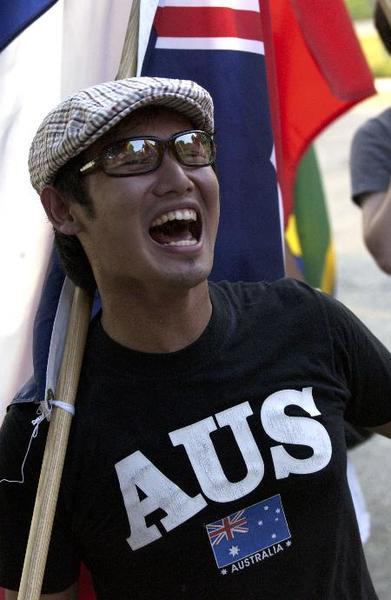As soon as Karen Estrada, an international student from Peru, arrived for the first time in the U.S., she felt the effects of the language barrier.Estrada lost her luggage and, upon arriving on campus, could not ask for help.
Estrada, an economics, finance and accounting major, found this to be the beginning of her experience of acclimating to a new environment as a TCU international student.
According to the Institute of International Education, about 600,000 students from around the world are choosing to study in America each year, allowing the U.S. to have the largest international student population in the world.
This fall, TCU increased the amount of international students accepted to the university. There were 148 international accepted students this year, compared to the 95 last year, according to TCU’s demographic statistical summary.
“The admissions counselors would e-mail you back within an hour of you e-mailing them,” Estrada said. “It’s like they really want you here – they care about diversity.”
As of 2006, international students most commonly enroll in studies focusing on business, management, engineering and physical and life sciences, according to the Institute of International Education.
For Your Information
Top Ten Countries at TCU
Country – Students
China – 40
South Korea – 35
India – 33
Colombia – 23
Guatemala – 23
Vietnam – 22
Mexico – 21
Nepal – 20
Canada – 16
Panama – 15
By the Numbers
148
International students accepted this year
95
International students
accepted last year
Coming to America causes international students to encounter a society where 82 percent of Americans more than 18 years old speak only English, according to the U.S. Census Bureau.
“Sometimes when I am talking, people don’t understand everything I am saying,” said Lisette Pieters, a junior education major from Holland. “Sometimes I have a hard time expressing my feelings in English.”
The Office of International Student Services on campus assists students in the cultural transition they face. International Student Services provides a two-day orientation for international students that focuses on informing them of requirements that pertain specifically to international students and prepares the students for the cultural shock that they will encounter, Estrada said.
“My first semester was the hardest,” said Meghana Mathew, a senior e-business major. “I suddenly became aware that my skin was a different color, my accent was different, even the dancing was different. It was weird watching things I didn’t understand.”
The biggest obstacles international students face as they come on campus is separating reality from vision, said John Singleton, the director of International Student Services.
“Many students often come to America to study and get the global experience,” Singleton said. “But often times, students arrive and they realize that their own experiences have been much more worldly than what they get here.”
Along with the cultural struggles, many international students find it difficult to find employment opportunities while at TCU, Estrada said. She said international students are instructed during international orientation that they cannot work off-campus unless it is for an internship, due to visa stipulations.
“I would like to get a job in America after graduating, but getting a job is hard,” Estrada said. “You have to get an employer that will sponsor you. Many times they do not do that because they have Americans that will do the same job for free.”
In order to remain working in the U.S. after graduation, international students have to obtain jobs with employers that are willing to sponsor their H-1B visas. According to the United States Immigration Support, a maximum of 65,000 H-1B visas are administered annually to professionals in “specialty occupations.”
Some international students come to America because they think an American degree is valued and the style of learning is more practical than in other countries, said Claudia Vaz, a TCU accounting graduate student from India.
“International students need to work harder than American students because they have to work hard to prove themselves,” Vaz said. “They have to be acceptant of giving beyond their culture and community.

